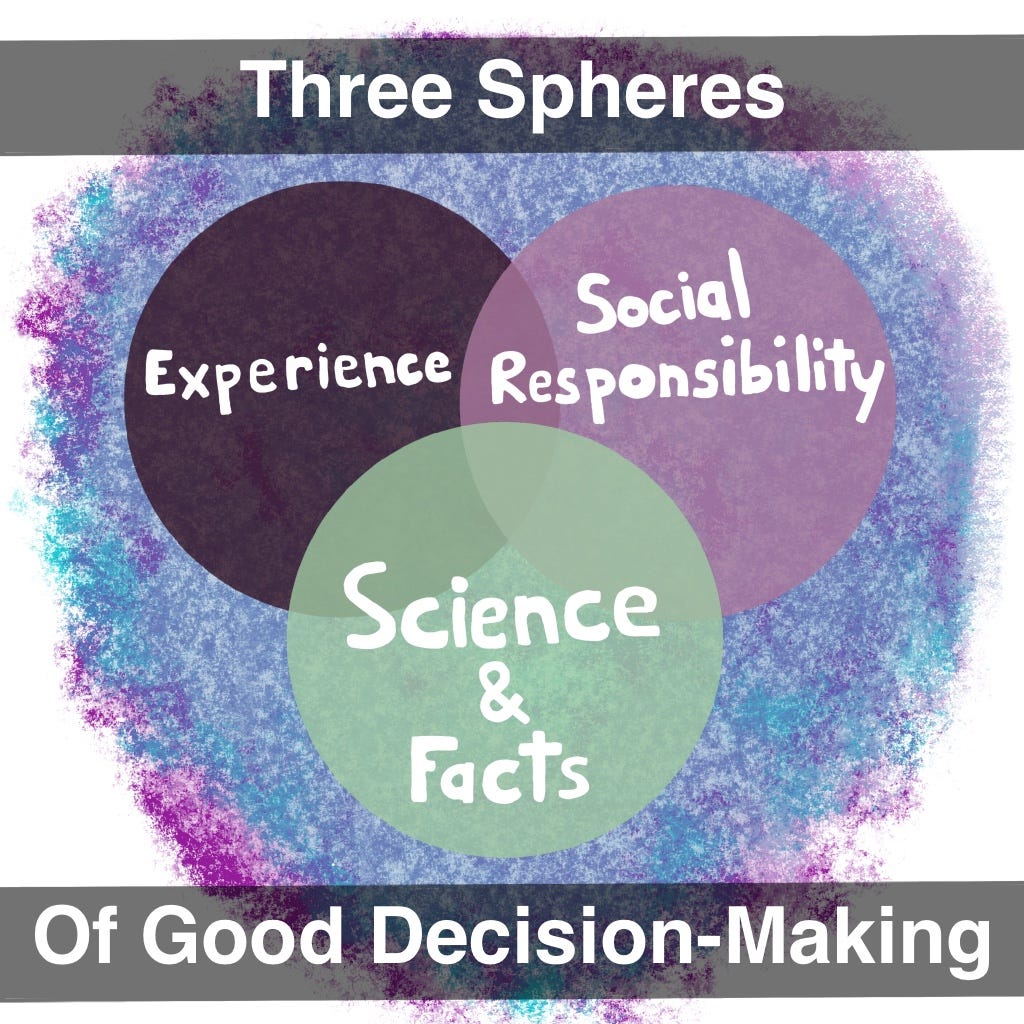Facts, experience & social responsibility
There is no absolute right or wrong; there is only what we know today and what we choose to do about it.
I recently stumbled on a tweet by Greta Thunberg, an 18-year-old climate change activist. Her words are direct and cutting at times. Many people struggle with that kind of language; they dislike hearing words, ideas, or facts that challenge their worldview.
A few responses to her tweet compared the commenter's age to Greta's. Here are a few examples:
Having been on this planet for over twice as long as you...
I recall 1976 …. Before you was born …
I'm 76 and you're still at school or something, aren't you?...
These commenters disagree with Greta on the climate crisis and point to their age to show they know better. Even when provided with facts by different commenters who shared infographics comparing the heat across the world forty years ago with today— these infographics clearly showed the difference; the world is much hotter today—their response was that science has been wrong many times in the past. Blinded by their experience, they are unwilling to consider other facts.
Experience is essential, but it can also deter us from seeing the whole truth. Experience is precisely that, our experience, which means it’s missing the experiences we haven’t had. It can be like wearing blinders and getting a limited view of what’s in front of us, not seeing the complete picture. It’s not helpful to let experience alone dictate our future.
Science has been wrong before, and yet we don’t give up on trying to gather more facts. A better way to look at science is holistically over time. And so, we make decisions based on the most accurate and current science available to us today. As science continues to evolve, so must our thinking and our decision-making.
To evolve our thinking, we must develop the ability to revisit past experiences and their inferred beliefs and challenge their validity; not all are true or valuable. There is no absolute right or wrong; there is only what we know today and what we choose to do about it.
A better way to make decisions and live our lives is to consider the three spheres of good decision-making: the facts and science — the objective truth — our experience and worldview—our beliefs, values, attitude, motivations, desires, preferences, emotions—and our social responsibility—ethics and morality.
A balance of these three spheres is crucial; relying solely on one devoid of the others creates more problems. Now more than ever, society tends to look at these as independent lenses, trying to sever the whole into parts. For example, in the twentieth century, science has taken such a stronghold in our thinking that many only believe what science can prove.
Our ways of thinking have become increasingly fragmented. Topics are more polarized than ever, challenging our ability to make good decisions and pushing us to debate and pick sides.
With climate change, many naysayers only focus on the parts that agree with their own experiences. They fail to look at this issue holistically. While we still have cold winters or cold weeks and days in the summertime, overall, when we look at the whole, we can see the climate trend is worsening.
Facts are rigid, observable and safe; they demonstrate their intent objectively. But facts powered by science don't account for all human capacity; they don't provide all the answers. Experience, knowing what is true for us, helps balance what science cannot answer. And it is also important to remember that beliefs and assumptions inferred from experience can often be flawed, and revisiting the facts is crucial.
We must also balance it all with a strong sense of moral and ethical responsibility. It’s essential to make decisions that go beyond just us, that are right and inclusive. Everything in life is part of an interconnected whole. A continued effort to fragmentize all topics and people into their parts separate from everything else only leads to more division and conflict.
Climate change is one area where the three spheres of good decision-making and viewing problems as part of an interconnected whole are essential. But what might happen if we brought this thinking into our businesses, politics, leadership, and relationships?
Miguel,
Sparknotion – Think Differently.
I invite you to look at The Carbon Almanac, the result of a worldwide effort and collaboration of people from different backgrounds, races and geography coming together to create change and share facts about the climate change issue. Help share the word.


